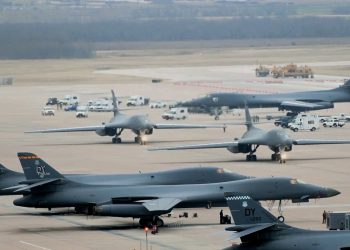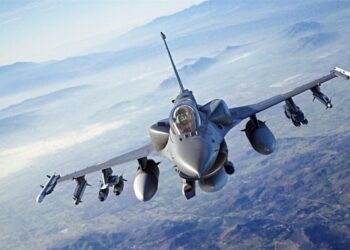Agence France-Presse,
WASHINGTON: A pair of Russian TU-95 Bear bombers overflew a US aircraft carrier in the western Pacific at an altitude of 2,000 feet (660 meters) over the weekend, prompting US fighter jets to scramble, a US defense official said Monday.
Four F-18 fighters jets intercepted the Russian bombers Saturday morning, but not before they had overflown the USS Nimitz, said the official, who spoke on condition of anonymity.
Japanese F-15 fighters had earlier scrambled to intercept another pair of Bear bombers, and escorted them out of the area, said a US military official who asked not to be identified.
The Japanese government issued a strong protest with Moscow, but Russian officials denied their aircraft had crossed into Japanese airspace.
The second pair of bombers were flying south of Japan when they “essentially turned inbound toward the USS Nimitz, and USS Nimitz aircraft launched and intercepted the bombers,” said the defense official.
The US F-18s escorted the bombers until they departed the area, the official said.
“There were no verbal communications between the Nimitz aircraft or the Russian aircraft,” the official said.
The official said one of the Russian bombers flew directly over the US carrier at an altitude of 2,000 feet, while the second bomber flew at its side at the same altitude.
The incident comes at a time when Russia is reviving the long-range air patrols that were once a standard feature of the Cold War.
It was the second time since July 2004 that a Russian Bear bomber has overflown a US aircraft carrier.
That incident involved the USS Kitty Hawk in the Sea of Japan.
The Nimitz, which was on a routine patrol in the western Pacific at the time of the incident, was back Monday in port in Sasebo, Japan, the official said.
It was not immediately known whether the United States issued any protests with the Russians.
US Defense Secretary Robert Gates met with Russia's deputy premier the following day on the sidelines of an international security conference in Munich.









